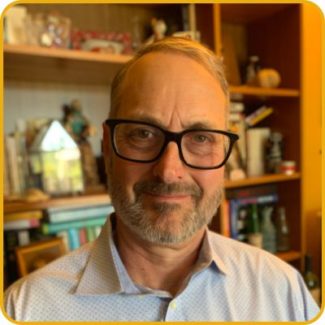Michael Rydman of Carisk cites the opioid epidemic and mental health conditions as two major reasons why some claims turn uncontrollable.
Risk & Insurance® interviewed Michael Rydman regarding his recent move to Carisk Partners as senior vice president of sales.
R&I: What aspects of the new role attracted you to the position?
Michael Rydman: The Carisk team and I share a common interest in addressing the unmet needs of patients with severe and complex work-related injuries.
Carisk’s Pathways 2 Recovery offering is potentially the most comprehensive program and infrastructure in the industry that is differentiated by its foundation in behavioral health. I am impressed by the senior leadership team and their approach in truly partnering within the industry to drive improved outcomes based on individualized client and patient needs.
What appealed to me most is the patient-centered culture and entrepreneurial spirit of this fast-growing company and I cannot wait to be a part of the team.
R&I: What are your goals in this new position?
Rydman: As senior vice president of sales, I am leading client relationship management, with a focus on expanding Acute and Non-Acute Risk Transfer and Pathways 2 Recovery programs.
My main goals are to understand what each client’s specific needs are and to solve their most challenging problems, such as managing a complex claim with underlying behavioral health components.
Through this, I hope to help establish Carisk’s position as a leader and agent of change in the workers’ comp marketplace and to positively impact patients’ lives at the same time.
R&I: Why do you think you got the role? In other words, what skills, talents or capabilities earned you the role?
According to Tom Downey, executive vice president at Carisk Partners:
“Michael is an industry veteran with over 15 years of experience in sales and account management specifically for acute, catastrophic and complex case management services for traumatic injuries and chronic pain management.
“We knew he’d be a strong fit to service our key accounts in the risk transfer business and appreciated Michael’s passion to make a difference in work comp. There has been a paradigm shift in this industry to provide a more comprehensive approach, and when we met with Michael we could see he shared our vision for solving the ever-changing needs.”
R&I: What will be the biggest challenges for you in this new position?
Rydman: Nearly every catastrophic claim has a pain component and delayed recovery is the biggest challenge.
There needs to be an acknowledgement of the underlying issues which exist to close the claim or improve return to work/function time.
Among people I speak with, there is already a heightened awareness of opioid and substance use-related issues, especially when treating chronic pain. But even with heightened awareness, injured workers are still prescribed long-term painkillers with no predetermined care plan.
One-in-five American adults suffers from a mental health condition that impacts their daily life with stress, anxiety and depression among the most prevalent for injured workers.
Companies have often feared “buying the psych diagnosis” which is understandable.
However, if left untreated this can all render a potentially straightforward claim nearly uncontrollable, resulting in poor outcomes, longer return to work time frames, increasing cost over time and lack of claims closure. Each client is different in their needs and unfortunately, they have lower expectations for a comprehensive and flexible offering that compliments the components they already have in place to solve for these issues.
R&I: How did you first come to work in this industry? What do you like best about your job?
Rydman: In 1989, I broke into the health care industry in the mail room of an insurance company in San Diego.
Eventually, I advanced to become a claims adjuster for that company. What I love most about my job is establishing trust between the company and its customers.
Carisk takes on the trust of its clients and patients to make decisions and create care plans that empower them. I like that we become a bridge bringing the client and patients closer in their combined goals and long-term success.
R&I: What are the biggest challenges facing your industry or profession?
Rydman: The workers’ compensation industry is complex.
Companies have become most effective in addressing measurable and quantifiable aspects of an injury. What they often forget is that we are not only dealing with the physical injury, but also the psycho-social consequences of the injury.
In parallel, you have the complexities of state specific guidelines, requirements and protocols. We have a great opportunity to increase awareness that there is a comprehensive, compliant program available which overcomes the barriers concerning behavioral health diagnosis for workers’ comp injuries in the Pathways 2 Recovery offering from Carisk. &





